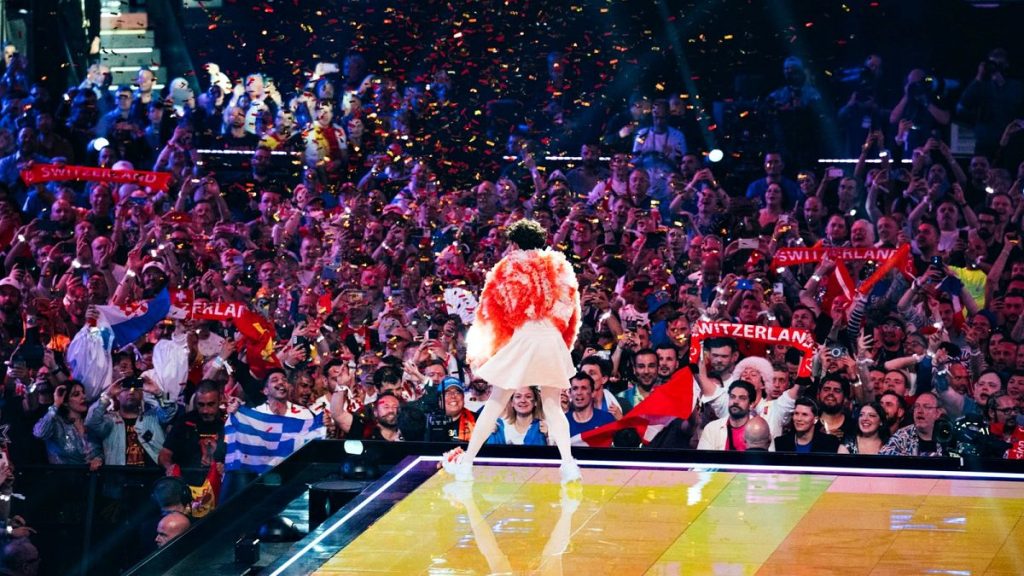The European Commission is upset about a ban on EU flags at the Eurovision Song Contest, with numerous viewers being reprimanded for carrying them at the Grand Final. Commission Vice President Margaritis Schinas criticized the ban, stating that Eurovision should be a celebration of European spirit, diversity, and talent, and that there should be no hindrances to celebrating all Europeans, especially with the upcoming European elections. The EU is seeking answers from the European Broadcasting Union, the organizer of the contest, regarding this issue. The EBU stated that the flag policy was enforced more strictly this year due to geopolitical tensions, but there was no explicit ban on the EU flag.
The controversy over the EU flag was part of a series of issues that marred this year’s Eurovision, including the last-minute removal of a contestant and Israel’s participation amid conflict in Gaza. Journalists reported a tense and chaotic atmosphere at the event in Malmö, Sweden. Despite these controversies, the crowd cheered for the Swiss representative Nemo, who won with the song “The Code,” creating an ecstatic ambiance at the end of the event. The Executive Supervisor of the contest, Martin Österdahl, was met with boos during the voting announcement.
The EU flag, with its distinct blue background and yellow stars, is recognized as a symbol of European unity. However, at Eurovision, its presence was deemed political and was reportedly banned from the event. Attendees attempting to enter the venue with EU flags were asked to surrender them, as they were considered political flags by security. Eurovision rules allow flags from participating countries and the Pride flag, promoting tolerance and diversity, but prohibit flags like the Palestinian flag. The EBU has emphasized that Eurovision is a non-political event and should not be politicized or brought into disrepute.
A policy advisor at the ALDE party shared his experience of being asked to surrender EU flags by security, leading to shock and disappointment among attendees. The group was required to hand over their flags in order to enter the venue, despite the absence of an explicit ban on the EU flag in Eurovision’s written policy. Attendees were also reportedly told to leave non-binary flags outside the event, with Nemo, a non-binary contestant and winner, criticizing the double standard. Nemo had to sneak in the flag and expressed the need for Eurovision to be improved.
The European Commission is seeking explanations regarding the ban on EU flags at Eurovision, emphasizing the importance of celebrating European unity and diversity. The controversy over the flag ban, along with other issues at this year’s event, have caused uproar among attendees. The conflicting messages regarding the EU flag being a political symbol while also promoting unity and diversity have sparked debates about the role of symbols in events like Eurovision. Nemo’s victory and their defiance of flag restrictions have brought attention to the need to address inconsistencies and ensure that Eurovision remains a non-political celebration of music and culture.













